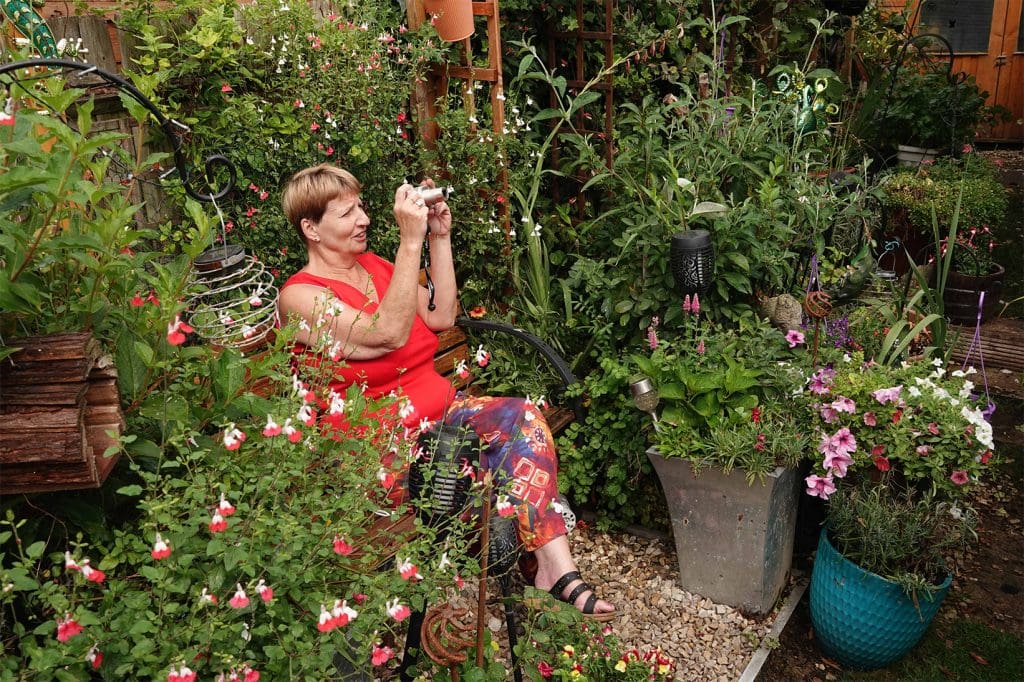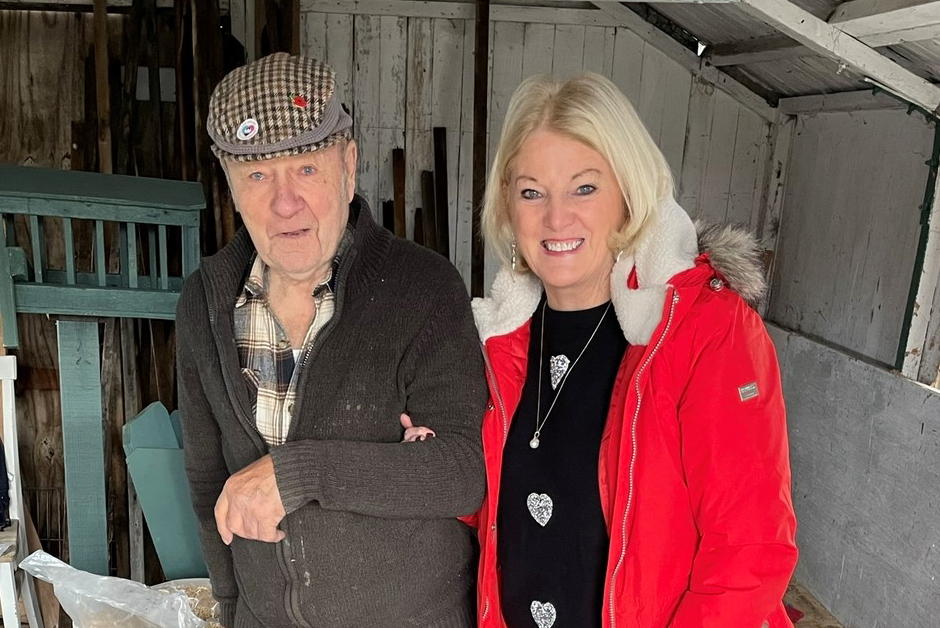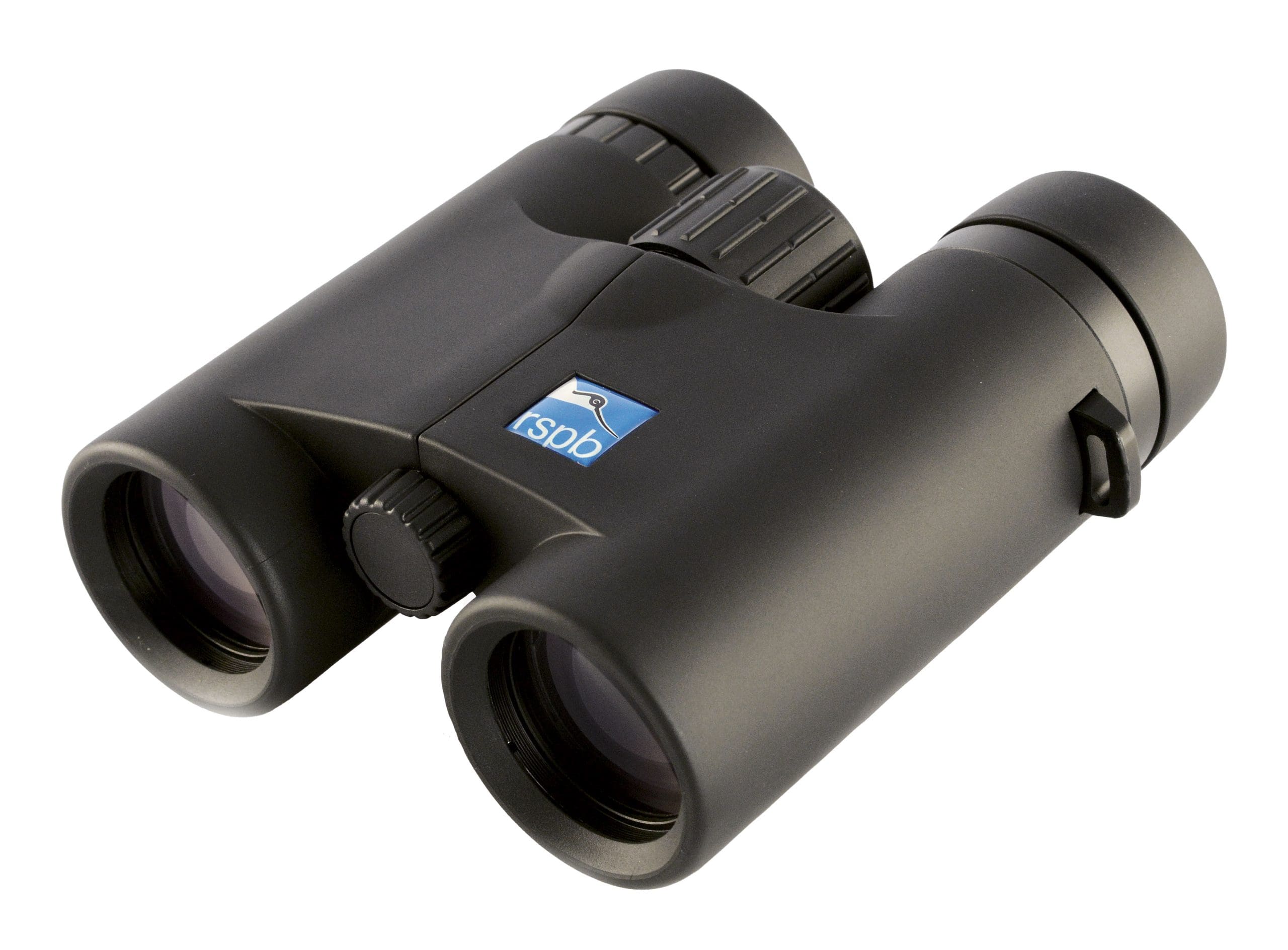Star letter: Paying it forward
We are a family run business, local to RSPB Saltholme. Recently, we saw social media posts about a local man named Bob who, in his 90s, is spending every day at his allotment building bird boxes, owl boxes and Hedgehog homes. He had become very disheartened as no one was buying or even taking the boxes for free. All the money Bob raises he donates to a local school, Springwell School in Hartlepool.
When we heard Bob’s story, we went straight down to meet him and purchased many of his boxes as a business. We’ve now donated these to many areas in our hometown where they can be enjoyed and encourage wildlife. My four-year-old son, Charlie, took several to put up in the nursery gardens. We visited Bob recently and he had made many more, so we purchased these and donated them to RSPB Saltholme at the weekend. We intend on taking Bob to visit once they have been put in place next season so as not to disturb the birds that are already nesting.
We’re so pleased to be able to help Bob do what he loves and also pay this forward to our local community.
Lyndsay Hogg
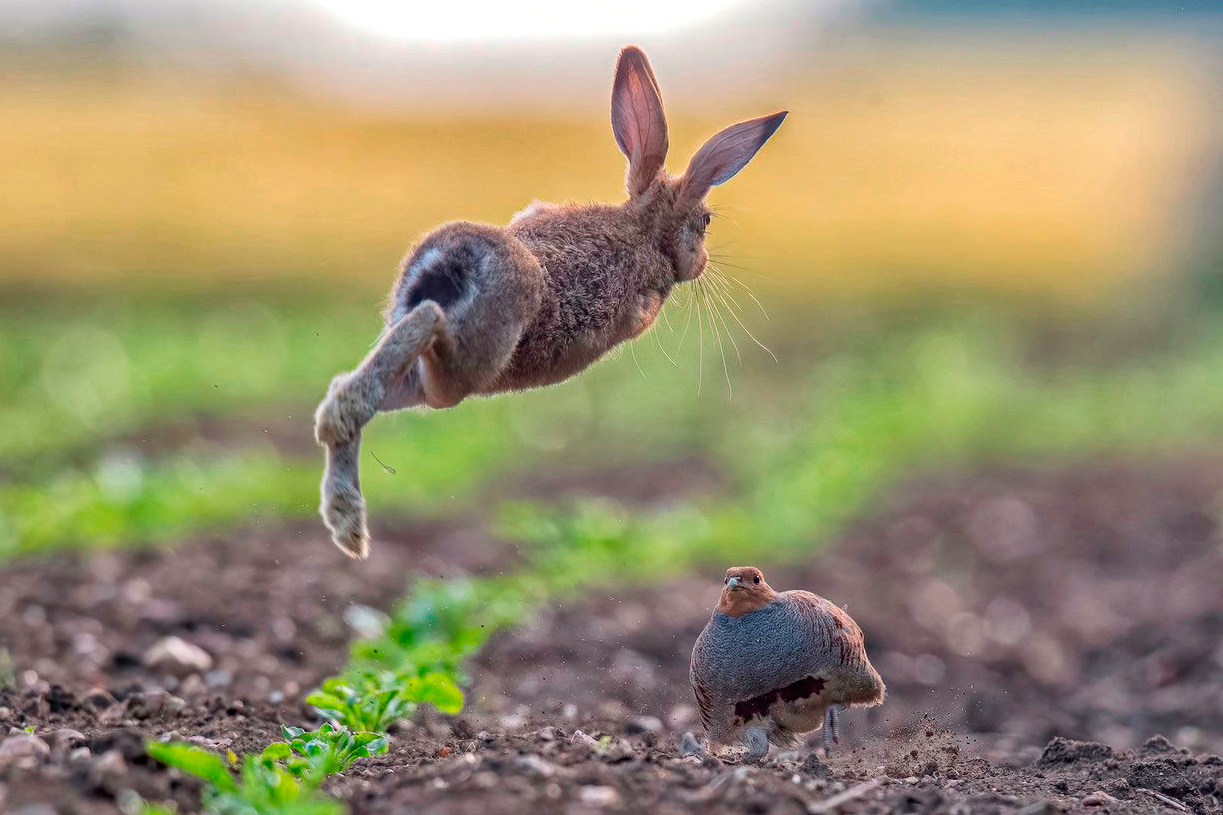
A hare-raising morning
This photo (see above) was taken at 5.30am at a local Sugar Beet field.
I was out early as usual to try and photograph boxing Hares, but the adults were in a very gentle mood, busy eating with no sign of chasing and boxing. I suspected I would be in for a quiet time. After a couple of hours, a half-grown leveret appeared at speed and proceeded to do mad teenage things, including interacting with a Grey Partridge!
I have spent years photographing Hares and have never seen this behaviour before. First of all he chased the Grey Partridge, and then the roles reversed, with the Partridge becoming quite aggressive towards the leveret. The dirt was flying.
This happened at breakneck speed, and after a series of chasing shots I managed to snap the Grey Partridge, aggressively running full tilt at the leveret, as it leapt in the air jumping clean over the Grey Partridge.
Frances Browne
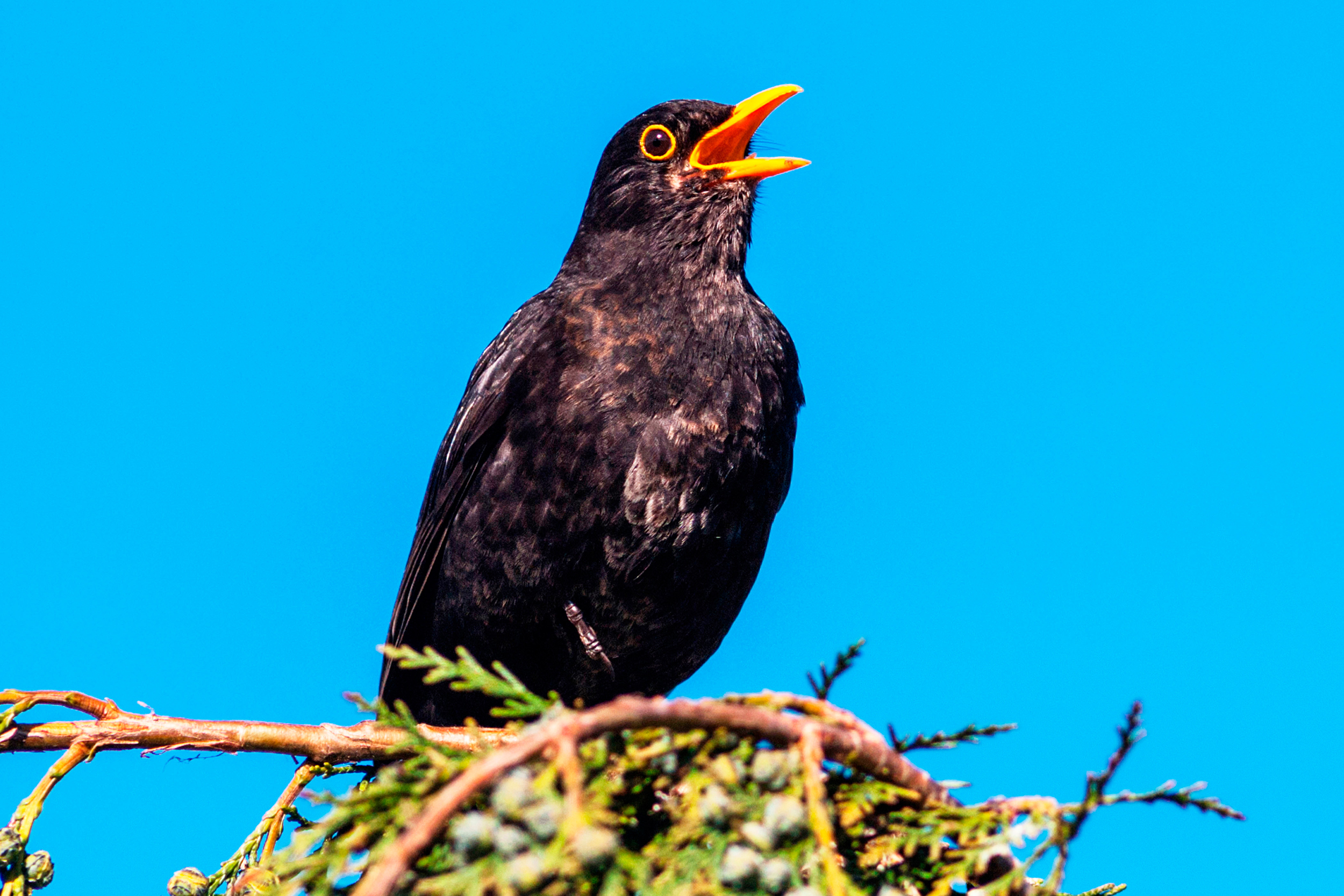
Birdwatching blunder
Birdwatching can be dangerous to your health, or at least has been to mine! A few weeks ago I was hobbling to my car – I have arthritic knees – after a meeting. It was a perfect balmy evening with a beautiful blue, cloudless sky and a gentle breeze. I put my crutches on the back seat and, as I closed the car door, a Blackbird started singing with a wonderful song.
I turned round to look at it about 200 yards away. Unfortunately, my feet did not follow and I lost my balance and fell to the ground with a thud. Because of my knee problem I couldn’t get up. My wife ran back inside the meeting hall to request assistance. Four people came out and helped me.
An X-ray the following morning showed that my shoulder had been fractured. I’ve been in a sling ever since! Looking back, I just remember lying on the ground prior to my rescue listening to that lovely song the Blackbird was singing. He hadn’t missed a bar and was still on the topmost branch of the tree having a good laugh!
David Walker
An unusual hunter
I’ve noticed a female Blackbird in my back garden pond in what I can only describe as hunting mode. She stands on the edge of the pond, head on one side and quite motionless. Then she makes a dash for the reeds in one corner and vanishes. This is repeated by a dash to the other corner in amongst the irises. Since the summer heatwave, she can access the stones that are normally underwater and last week, to my dismay, she emerged with a large newt which she beat to death on the stones and flew off with. I wondered if this was the bird that had acted the same way two years ago.
Last year a Mallard and 13 ducklings took up residence and cleaned my pond out of all livestock so there were no newts left for this predator. She also appears to ‘fish’ for food by leaning into the pond and dragging pond weed on to dry land and eating any little creepy crawlies she finds. Have any other readers experienced the same behaviour?
Angela Denbury
Ed: This is an extraordinary behaviour to observe! Newts do not naturally form part of a Blackbird’s diet as they typically feed on invertebrates, fruits and seeds. It is therefore impressive that the bird took to hunting in your pond – perhaps she was being driven by her maternal drive to feed her offspring and was seeking alternative food sources having learned that newts make a nutritional meal.
Nature’s remedy
You’re never on your own when a Robin is around, that’s what I’ve found anyway. There’s just something about those cheeky little birds whose red breast can light up the dullest of winter days. It was a Robin’s song that finally pulled me out of my battle with depression, anxiety and paranoia, which saw me off work for 10 months with two stays in St Ann’s psychiatric hospital in Poole. Being surrounded by green helped calm my head and it still helps me today. I’ve found nature and my camera to be powerful self-help therapy tools.
Since 2019 I’ve been telling my story to try and help others going through mental illness; this has helped me grow in confidence and I really feel that I am giving something back. Nature is a healer, there’s been medical studies to prove it. So please, if you feel like the world is getting on top of you, get yourself into nature. You won’t regret it.
Trevor Parsons
Precious puffins
The short article ‘Protecting our Puffins’ in the latest edition of The RSPB Magazine highlighted the fact that these birds are in trouble. My favourite Puffin ‘hotspots’ are RSPB Bempton Cliffs and RSPB Flamborough Head where it is still possible to get fairly close-up views. It is impossible not to be amazed by the adaptability of these wonderful little birds. They can fly very fast and for reasonably long distances. They can float on the sea and swim rapidly up to 60m below the surface. They can walk on land reasonably well for a seabird and burrow and nest underground.
Is there any other species on the planet that is better adapted to life on the land and on the sea and in the sky? I don’t think so. These precious birds must be protected at all costs.
Dave Thomson
The state of nature
I have been birdwatching for over 60 years – since I was six years old – and believe that due to climate change this has been by far the worst year I have known for sightings. I didn’t hear my first Cuckoo until the first week in June; I usually hear the first one in April.
I am really concerned for the future of nature. Even last year I went out birdwatching and on many occasions saw 28–30 different types of birds. This year, not once have I reached that figure. If something isn’t done we could lose some birds.
I just hope something is done before it’s too late. I would be interested to hear your thoughts on the matter.
R Tovey
Ed: There are often variations in the fortunes of wildlife each year or in certain locations. However, the latest State of Nature report shows the UK’s biodiversity has declined significantly in the last 50 years. The UK has set ambitious targets to turn things around, but we need action from policy makers, businesses, conservation organisations and all of us as individuals.
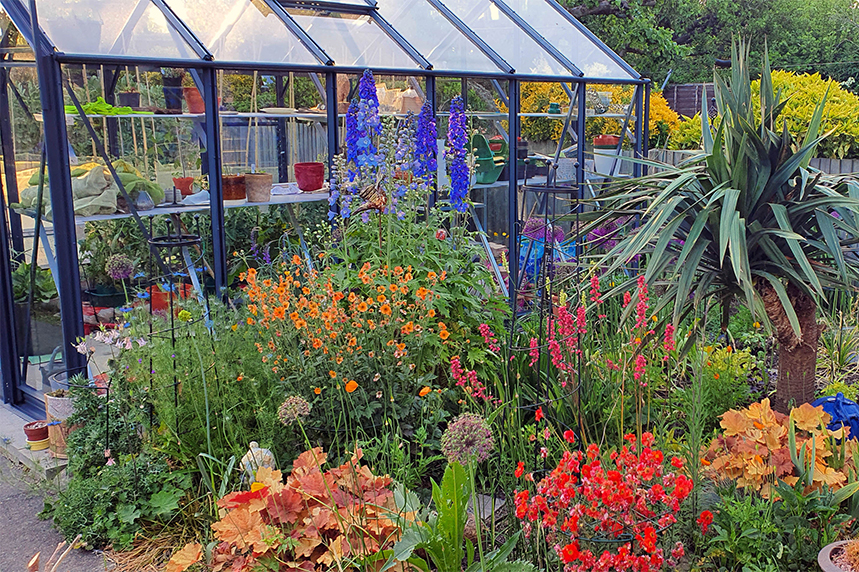
Working with nature
Five years ago, I moved into my husband’s lovely home, which had a rather neglected, large garden. Having lived and worked in London for 20-odd years, I really appreciated this space.
I’m amazed with what I have achieved. The overall result has come slowly, by focusing on one area at a time.
I started by planting a range of flowers and shrubs that would give colour and scent throughout each month. Easy wins included bird boxes, a pond, log piles, wildflowers and a change of mowing regimes. Growing fruit and vegetables organically, companion planting and adopting a no-dig system also seemed straightforward. Making my own compost and using leaf litter had great benefits, too.
Wildlife highlights have included the Thick-legged Flower-beetle, lacewing larvae, empty cases of damselfly larvae, and the wonderfully named wasp Gasteruption jaculator. Fascinating!
Every month we have at least one flower or shrub that is joyously scented and a variety of insects. On summer nights, the garden fills with moths.
What has been really special is the success of growing winter food for birds. For the first time I have spotted Goldfinches eating the echinacea, rudbeckia and aster seed heads.
I will continue to look for more ways to make a difference.
Samantha Lewin-Mearing
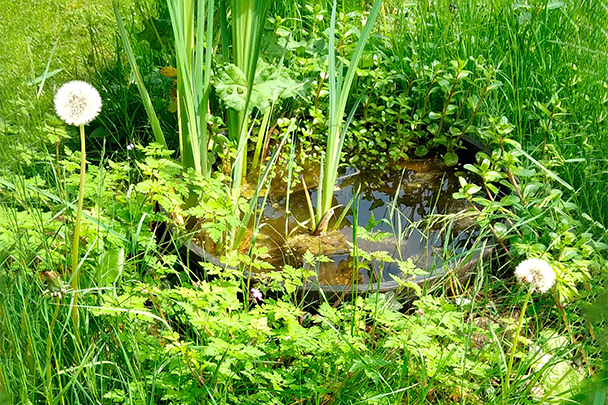
Pond perfection
I thought I would share with you our attempts at helping wildlife in our garden. We have a bug house, Hedgehog feeding house, dead hedge, feeders and flowers. The pond is a plastic half barrel slightly sunken into the ground, where we’ve let the grass grow around it and added Primroses and Forget-me-nots.
Sat in the garden listening to bird song, watching Buzzards and Red Kites above, and butterflies, bees and other insects fluttering and buzzing around is so enjoyable and relaxing. There’s always something to look at.
Karen Gardner, Sleaford, Lincolnshire
Have your say
Star letter prize
Send us your letters. The star letter wins a pair of RSPB 8×32 Avocet binoculars from our Viking Optical range. Waterproof, nitrogen-filled and robust. Send your letters to RSPBmagazine@rspb.org.uk.
You might also like
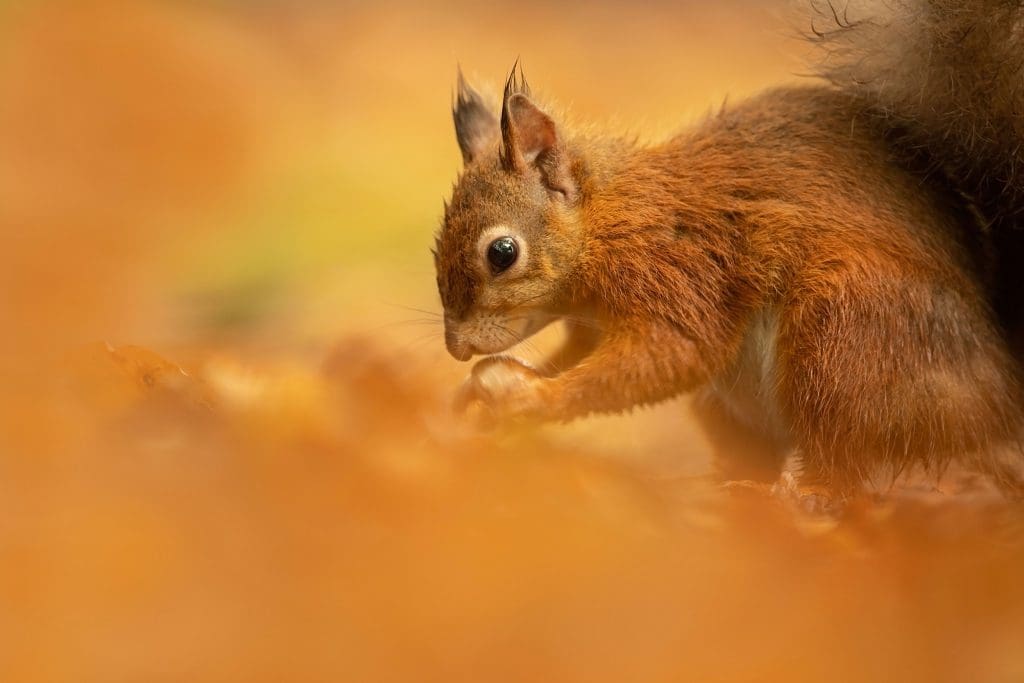
Capturing colour in autumn
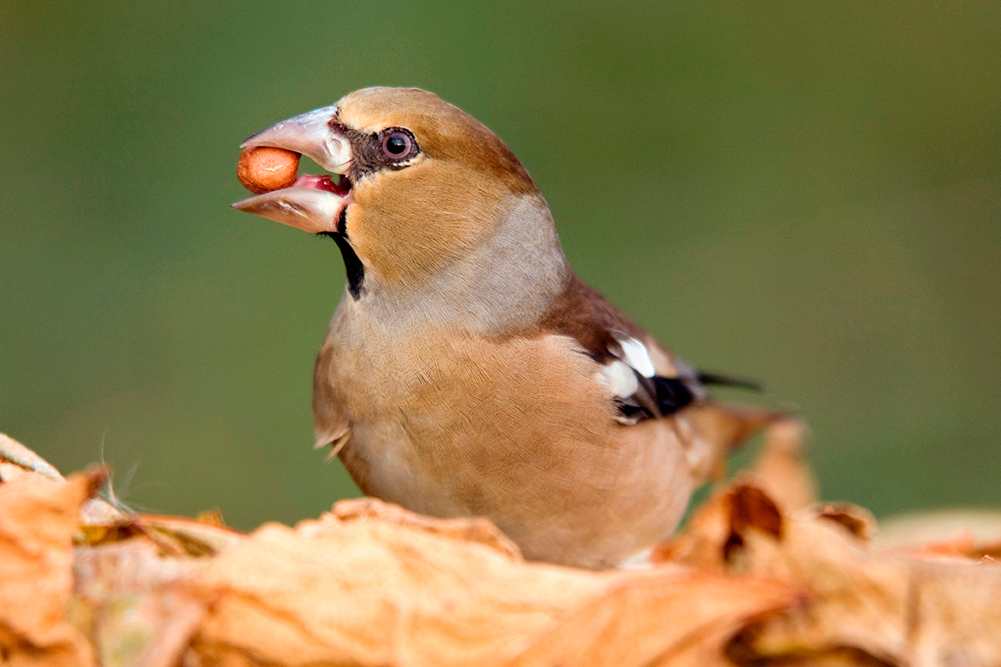
Your questions – autumn/winter 2023
